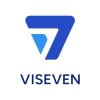Dive Brief:
- Merck & Co. has inked a deal to buy the three-year-old German biotech Rigontec, in a move to grow its already successful immuno-oncology portfolio and bring in new mechanisms of action.
- Merck will pay €115 million ($137.1 million) upfront to Rigontec’s shareholders, with further payments of up to $349 million ($416.2 million) if milestones are met.
- Rigontec's lead compound, RGT100, has already entered human trials. It is in an open-label Phase 1/2 safety and efficacy study in a number of different advanced or recurrent solid tumors or lymphoma. The study began earlier this year and is due to complete in December 2019.
Dive Insight:
Merck has shown its I/O strength with Keytruda (pembrolizumab). In the second quarter of 2017, Merck saw three accelerated approvals and one full approval in the U.S., a recommendation in the EU, and a 180% increase in sales. The company has over 550 clinical trials evaluating its anti-PD-1 therapy in more than 30 tumor types.

Merck hasn't had it all its own way in immune-oncology, however, with a missed endpoint in recurrent or metastatic head and neck squamous cell carcinoma (HNSCC) in the KEYNOTE-040 trial. Despite this it has held onto its accelerated approval, and other HNSCC trials are ongoing. It has also had three combination trials, with Celgene's Revlimid (lenalidomide) or Pomalyst (pomalidomide) plus dexamethasone in multiple myeloma, put on hold because of an excess number of deaths in the treatment arm.
The buyout of University of Bonn spinout Rigontec is taking the company down a new immuno-oncology approach, with a pipeline of agonists that activate the gene RIG-I, triggering immediate and long-term tumor immunity. While these are still at an early stage of development, this pipeline of bifunctional RNA molecules provides the big pharma with access to a new mechanism of action. These also have potential in infectious and inflammatory diseases.
"Rigontec’s immuno-oncology approach of engaging the innate immune system to safely eliminate cancer cells complements our strategy and our current pipeline," said Eric Rubin, VP of early-stage development, clinical oncology at Merck Research Laboratories.
While there are a number of companies trying to target the innate immune response, Evercore ISI analyst Umer Raffat said in a note to clients that the closest competitor is Kineta Bio. He noted that the biggest concern with the mechanism is safety. "While this hints robust response, it also leaves the possibility of uncontrolled inflammation which is a common concern with IFN Therapy," he wrote.












